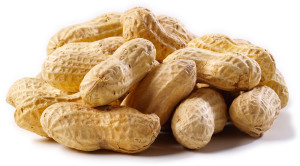Around one in ten Australian children have a food allergy and around three in one hundred are allergic to peanuts. Researcher Mimi Tang blames the increase in food allergies to increasing hygiene standards resulting in reduced exposure to a broad range of bacteria necessary to build up a healthy immune system.
Tang is the lead researcher of a group of Melbourne based scientists at the Murdoch Children’s research institute which may have found a cure to peanut allergies.
The group carried out an eighteen month trial on two groups of thirty children aged one to ten suffering from peanut allergies. The first group were given a placebo and the second were given increasing daily doses of peanut flour to a maximum of two grams (equivalent to six or seven peanuts). Additionally the second group were also given large quantities of a probiotic: Lactobacillus rhamnosus, a bacteria that colonises the digestive tract and balances intestinal microflora (in quantities equivalent to eating around 20 kg of yogurt per day!)
At the end of the trial, only 4% of the placebo group were able to consume peanuts, compared to 80% of the second group which were now able to consume peanuts.
The children who took part in the trial claimed that it has ‘changed their lives‘. With peanut allergies often being lifelong and the most common cause of death from food-related anaphylaxis, these results are highly significant and could potentially lead to new, more pragmatic treatments. However, long term effects must also be considered. Tang plans to launch a follow up study in which peanuts will be removed from the children’s diet for eight weeks and the effects observed.
However, Tang warns that these methods should not be carried out at home; the conditions are currently only suitable under medical supervision as some participants had serious allergic reactions.
![Warning : May contain Peanuts ! Around one in ten Australian children have a food allergy and around three in one hundred are allergic to peanuts. Researcher Mimi Tang blames […]](/wp-content/uploads/2015/01/peanuts-640x361.jpg)
